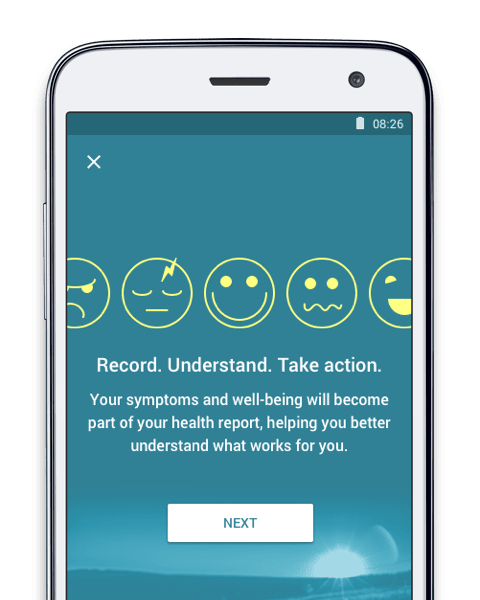CFS is not simple tiredness or feeling slightly weary. Life with chronic fatigue syndrome (CFS) is feeling complete exhaustion and pain, all the time. CFS or ME (myalgic encephalomyelitis) is often mitigated by the environment of those affected, yet hardly anyone can imagine the extent of the illness. Even among medical professionals, CFS is little known to the point that those living with it are frequently groping along in the dark until the diagnosis is made, often by a process of elimination.
We want to clarify what the illness is, and let those with CFS/ME know that there are organizations that understand what they’re going through, and can provide resources to help.
CFS/ME: More than just exhaustion
CFS can mean often being barely able to climb a few stairs, let alone manage a day at the office or having a night out with friends. Small tasks are so strenuous that immediate rest is required. Difficulty concentrating, joint and muscle pain, as well as headaches, are common CFS symptoms. Additionally, though patients are constantly tired, many have trouble sleeping.
Myalgic encephalomyelitis (ME), is often preceded by a viral infection, and can also be accompanied by cognitive dysfunction, dizziness, weakness, and swollen lymph nodes. There is significant controversy in the medical literature about the relationship between ME and CFS. While many of the symptoms are the same, ME is currently characterized by measurable abnormal changes in the brain and central nervous system. Many patient advocacy groups, physicians, and researchers want to abandon CFS and adopt ME on a broad scale, arguing that the term chronic fatigue syndrome is inaccurate and trivializes the illness. Others argue that ME should keep its strict neurological definition. As we are primarily discussing the management of CFS symptoms, we use both terms.
Those affected by Chronic Fatigue Syndrome do not only have the physical symptoms to deal with but the psychological effects as well. CFS can take a significant toll on personal relationships, through a combination of limited participation in social life, and friends and family who fail to grasp the extent and reality of the patient’s exhaustion. For patients, this is undeniably stressful and can end in a downward spiral, feeling increasingly entrapped in their homes and less active - for fear of worsening the disease.
Stay active with CFS
CFS symptoms are mostly controlled by painkillers and other CFS medication. Psychological approaches such as cognitive behavioral therapy (CBT) and stress management methods such as yoga, meditation, and mindfulness are also recommended. Despite exhaustion, it is important to remain active to maintain fitness and agility. Participation in a social life is equally important, but both must be done while consciously listening to the body, as overexertion is a concern.
With this is in mind, doctors advise keeping an Activity Journal, e.g. with the help of a pill reminder app or CFS app. MyTherapy (for Android and iOS) can be used for this purpose.
The App for people with CFS or ME helps by keeping an overview of various physical activities, keeps the motivation to be active, and reminds users of doctors’ appointments and acts as a medication reminder.
Organizations and associations that support
In addition to CFS symptom treatment, it is particularly important for patients to be taken seriously by those close to them, and to be able to exchange information and experiences with fellow patients. Patient associations, organizations, self-help groups, and forums are excellent contact points for resources. Although CFS/ME is relatively rare, these groups are highly effective when it comes to the common goal of increasing awareness and providing a better understanding of the disease.
Organizations want to raise the awareness of the general public about chronic fatigue syndrome and improve social and medical care, as many physicians have inadequate knowledge of the illness. Many organizations and associations also support CFS/ME patients in everyday life by providing services like peer support networks, support networks for caregivers, or presenting the latest CFS treatment options.
Neuroimmune Alliance
Neuroimmune Alliance is a new UK-based patient organization that represents people with rare diseases, including ME, that affect the immune and central nervous systems. They aim to raise understanding of these diseases amongst the medical profession whilst improving services and access to special care e.g. for Chronic Fatigue Syndrome treatment within the National Health Service (NHS). Neuroimmune Alliance believes a holistic and multidisciplinary approach towards the illness is needed and treatment plans should be tailored to each individual.
Phoenix Rising
Phoenix Rising provides people with CFS/ME with information to support their health and wellbeing. They have a large database of information about CFS and ME and publish articles. Additionally, they have a number of forums addressing a variety of CFS/ME related topics from advocacy and fundraising to discussions on living with CFS/ME. Here affected patients can find others to empathize with, encourage one another, and share tips and advice. This sense of community is fantastic for the rough patches this illness puts people through.
ME Association
The ME Association provides information, practical advice, and support for people, families, and caregivers affected by ME and CFS. They also fund research into the illness and offer training and education. The ME Association offers great resources to help with explaining to friends and family what ME/CFS is and how it affects someone, an especially difficult task due to the fact that ME/CFS can be an invisible illness.
Invest in ME Research
In addition to facilitating and funding research, Invest in ME Research also has a fantastic quantity of information and statistics about ME. For example, did you know that ME is estimated to be twice as common as MS and three times more prevalent than HIV/AIDS? Yet so few people know about this disease! They are trying to change the current state of affairs surrounding ME through education and by collaborating and coordinating events and activities, in order to focus on and fund the high quality biomedical research that ME needs. Invest in ME Research are proposing a UK Centre of Excellence for ME with the hub based in Norwich Research Park. The charity is current chair of the European ME Alliance (EMEA) and organises annual CPD-accredited research Colloquium and Conferences in London, UK.
International Association for CFS/ME
The mission of the IACFS/ME is to promote, stimulate, and coordinate the exchange of ideas related to CFS and ME research, patient care, and treatment. The IACFS/ME also periodically reviews the current research, treatment literature, and media reports for the benefit of scientists, clinicians, and patients. While IACFS/ME is an international organization, they offer a directory to resources and patient organizations in many countries.
Solve ME/CFS Initiative
The Solve ME/CFS Initiative (SMCI) has been the leading organization focused on myalgic encephalomyelitis (ME), commonly referred to as chronic fatigue syndrome (CFS), since being founded in 1987. SMCI seeks to actively engage the entire ME/CFS community in research, works to accelerate the discovery of safe and effective treatments, and strives for an aggressive expansion of funding toward a cure.
If you like this post, you may also like:



